
An overlooked chapter in Ornette Coleman's recording career, these two Blue Note albums recorded in NY in 1968 and issued in '68 & '71 feature the innovative alto saxophonist joined by West Coast tenor saxophonist recently moved to NYC, Dewey Redman, and Coltrane sidemen, drummer Elvin Jones & bassist Jimmy Garrison, for two sessions of inventive and accomplished free jazz.
In Stock
Quantity in Basket: None
Log In to use our Wish List
Shipping Weight: 3.00 units
EU & UK Customers:
Discogs.com can handle your VAT payments
So please order through Discogs
Sample The Album:
Ornette Coleman-alto saxophone, violin, trumpet
Dewey Redman-tenor saxophone
Jimmy Garrison-double bass
Elvin Jones-drums
Click an artist name above to see in-stock items for that artist.
UPC: 752156112525
Label: ezz-thetics by Hat Hut Records Ltd
Catalog ID: ezz-thetics 1125
Squidco Product Code: 31340
Format: CD
Condition: New
Released: 2021
Country: Switzerland
Packaging: Cardboard Gatefold
Recorded April 29, 1968 (tracks 1 to 3,6 & 8) and May 7, 1968 (track 4,5,7, & 9) New York City; CD-master by Michael Brändli, Hardstudios AG; Cover photo by Philippe Gras; Liner Notes by Bill Shoemaker, graphic concept by fuhrer vienna; Associate producer: Christian C. Dalucas; Executive producer: Werner
New York Is Now originally released in 1968 on the Blue Note label as a vinyl LP with catalog code BST 84287.
Love Call originally released in 1971 on the Blue Note label as a vinyl LP with catalog code BST-84356.
"New York is Now! and Love Call are rarely mentioned in surveys of Ornette Coleman's music, and they are often glossed over when they are cited. They are not landmark statements like The Shape of Jazz to Come or Dancing in Your Head. Even in commentary focusing on Coleman's recordings for Blue Note between 1965 and '68, these albums tend to be overshadowed by the two volumes of At the "Golden Circle" Stockholm with David Izenzon and Charles Moffett. However, these last sessions before Coleman's departure for Impulse! are pivotal, influential albums that merit reassessment.
Thumbnail descriptions of the two albums too often lead with namechecking Jimmy Garrison and Elvin Jones - "Coltrane's rhythm section" - as if their presence was a ploy. This overlooks the bassist's undervalued contribution to Ornette on Tenor, and his work in Coleman's quartet with Bobby Bradford and Moffett until the end of 1961, when he joined Coltrane's quartet for steady work after Coleman stopped playing clubs. Even in its heyday, Garrison and Jones collaborated outside the classic quartet, co-leading Illumination, a 1963 sextet date that included Coleman's high school friend, Prince Lasha. It is also noteworthy that Jones' trio with Garrison and Joe Farrell recorded the minor classic Puttin' It Together for Blue Note three weeks before the first of the two sessions represented here. They had the requisite experiences to fully engage as a tandem with the idiosyncrasies of Coleman's music - and they did.
Arguably, Coleman's most crucial recruitment for the dates was Dewey Redman, another of Coleman's contemporaries at Fort Worth's I.M. Terrill High School (along with John Carter, King Curtis and Moffett). The tenor saxophonist had recently relocated to New York after nine years in San Francisco, where he recorded Look for the Black Star in early 1966, with Jym Young, Donald Garrett, and Eddie Moore. Issued on Fontana, the album most likely was little heard in the US when Redman arrived in New York; yet, he became sufficiently known in short order to play on a legendary unissued Sunny Murray session for Columbia in March '68. On both the Fontana album and the Murray session, Redman played with exciting dexterity and intensity, augmented by what became his signature use of voice-thickened textures, attributes he brought to Coleman's music.
With Redman, Jones, and Garrison, Coleman essentially retooled his music. Instead of Billy Higgins' aerodynamic swing or Ed Blackwell's New Orleans-steeped buoyancy, Jones created visceral heat. Reflective of his rapport with Jones, Garrison's sound was more muscular than the filigree-prone Scott LaFaro, and he was more persistent in projecting forward momentum than Charlie Haden, who had a penchant for veering into ponderous rubato. Redman exemplified Coleman's case - quoted by A.B. Spellman in his liner notes for Ornette on Tenor - that "[t]he tenor is a rhythm instrument, and the best statement Negroes have made, of what their soul is ... you can get to people with it."
By no means did Coleman's unit mainstream his music; instead, they gave a new, palpable energy to several aspects of his unorthodox compositional language. They smoothly negotiated the tempo changes, the transposition of themes by a minor third, and the metric ambiguity, Coleman embedded in pieces like "Broadway Blues" and "Check Out Time." Facilitated by Redman's Bb tenor, Coleman introduced themes played in parallel fourths, which gave "The Garden of Souls" and "Open to the Public" added harmonic texture. Additionally, they bolstered Coleman on "Love Call," his most technically assured and well-constructed performance on trumpet.
Perhaps the most intriguing, singular track from these sessions is "We Now Interrupt for a Commercial." It is a high-intensity, three-minute improvisation featuring Coleman's ecstatically sawed violin, which is repeatedly and abruptly stopped for the announcement that gave the piece it's named. Band members, primarily Redman, made the off-mic announcements on the original take; however, Mel Fuhrman's voice was overdubbed for the LP. While Fuhrman's stereotypical announcer's voice gave the piece a sharper satirical edge, the original, issued on a 1990 CD reissue of New York is Now!, has an infectious after-hours joviality.
Discussions of a recording being influential usually beg the question: Who did it influence? In the case of New York is Now!, there is an obvious answer - Pat Metheny, who included "Broadway Blues" and "Round Trip" on his 1975 debut, Bright Size Life. The guitarist's dedication to Coleman's music was sustained and ardent. Metheny recorded Coleman compositions on subsequent albums with, respectively, Redman and Haden, and Haden and Higgins, leading to his 1986 collaboration with Coleman, the widely acclaimed Song X. If anyone came close to mainstreaming Coleman's music, it was Metheny.
The music on New York is Now! and Love Call is, at turns, provocative and joyful, familiar and strange, in a deep pocket and outward bound. Beyond being influential and deserving of higher rank among Coleman's many enduring recordings, they are simply among the most satisfying."-Bill Shoemaker, October 2021

The Squid's Ear!
Artist Biographies
• Show Bio for Ornette Coleman "Randolph Denard Ornette Coleman (March 9, 1930 - June 11, 2015) was an American jazz saxophonist, violinist, trumpeter, and composer known as a principal founder of the free jazz genre, a term derived from his 1960 album Free Jazz: A Collective Improvisation. His pioneering performances often abandoned the chordal and harmony-based structure found in bebop, instead emphasizing a jarring and avant-garde approach to improvisation. Born in Fort Worth, Texas, Coleman began his musical career playing in local R&B and bebop groups, and eventually formed his own group in Los Angeles featuring members such as Ed Blackwell, Don Cherry, Charlie Haden, and Billy Higgins. In 1959, he released the controversial album The Shape of Jazz to Come and began a long residency at the Five Spot jazz club in New York City. His 1960 album Free Jazz would profoundly influence the direction of jazz in that decade. Beginning in the mid-1970s, Coleman formed the group Prime Time and explored funk and his concept of Harmolodic music. Coleman's "Broadway Blues" and "Lonely Woman" became genre standards and are cited as important early works in free jazz. His album Sound Grammar received the 2007 Pulitzer Prize for Music. AllMusic called him "one of the most important (and controversial) innovators of the jazz avant-garde"." ^ Hide Bio for Ornette Coleman • Show Bio for Dewey Redman "Walter Dewey Redman (May 17, 1931 - September 2, 2006) was an American saxophonist who performed free jazz as a bandleader and with Ornette Coleman and Keith Jarrett. Redman mainly played tenor saxophone, though he occasionally also played alto, the Chinese suona (which he called a musette), and clarinet. His son is saxophonist Joshua Redman." ^ Hide Bio for Dewey Redman • Show Bio for Jimmy Garrison "James Emory Garrison (March 3, 1934 Ð April 7, 1976) was an American jazz double bassist. He is best remembered for his association with John Coltrane from 1961 to 1967. Garrison was raised in both Miami, Florida and Philadelphia where he learned to play bass. Garrison came of age in the midst of a thriving Philadelphia jazz scene that included fellow bassists Reggie Workman and Henry Grimes, pianist McCoy Tyner and trumpeter Lee Morgan. Between 1957 and 1962, Garrison played and recorded with trumpeter Kenny Dorham; clarinetist Tony Scott; drummer Philly Joe Jones; and saxophonists Bill Barron, Lee Konitz, and Jackie McLean, as well as Curtis Fuller, Benny Golson, Lennie Tristano, and Pharoah Sanders, among others. In 1959 he first appeared on record with Ornette Coleman on "Art of the Improvisers" (Atlantic, 1959). He continued to work with many leaders, including Walter Bishop, Jr., Coleman, Dorham, and Cal Massey for the next two years. He formally joined Coltrane's quartet in 1962, replacing Workman. The long trio blues "Chasin' the Trane" is probably his first recorded performance with Coltrane and Elvin Jones. Garrison performed on many classic Coltrane recordings, including A Love Supreme. In concert with Coltrane, Garrison would often play unaccompanied improvised solos, sometimes as the prelude to a song before the other musicians joined in. After John Coltrane's death, Garrison worked and recorded with Alice Coltrane, Hampton Hawes, Archie Shepp, Clifford Thornton and groups led by Elvin Jones. Garrison also had a long association with Ornette Coleman, first recording with him on Ornette on Tenor and appeared on the outtake compilation Art of the Improvisers. He and drummer Elvin Jones have been credited with eliciting more forceful playing than usual from Coleman on the albums New York Is Now! and Love Call. In 1971 and 1972, Garrison taught as a Visiting Artist at Wesleyan University and Bennington College. Jimmy Garrison had four daughters and a son. Garrison and his first wife Robbie had daughters Lori, Joy and Robin. Then later with his second wife, Italy-based dancer and choreographer Roberta Escamilla Garrison, came Maia Claire and Matthew. Matthew, Joy and Maia Claire are accomplished artists in their own right. Matthew Garrison is a bass guitar player and the founder/owner of ShapeShifter Lab in Brooklyn, NY. He has performed and recorded with Joe Zawinul, Chaka Khan, The Saturday Night Live Band, John McLaughlin, Joni Mitchell, Herbie Hancock, Steve Coleman, Whitney Houston, Pino Daniele, John Scofield, Paul Simon, Tito Puente and many others. Joy Garrison sang alongside Barney Kessel, Cameron Brown, Tony Scott and many others. Maia Claire (Garrison-Trinn), former soloist with the dance troupe Urban Bush Women, currently works a Dance & Health Educator in Altamonte Springs, Florida. Jimmy Garrison died of lung cancer on April 7, 1976. His family legacy includes five grandchildren, Keith Owens, Glenda Rose Aiello, Benjamin Garrison, Lucas Garrison and Salif Alessandro Trinn. On June 25, 2019, The New York Times Magazine listed Jimmy Garrison among hundreds of artists whose material was reportedly destroyed in the 2008 Universal fire." ^ Hide Bio for Jimmy Garrison • Show Bio for Elvin Jones "Elvin Ray Jones (September 9, 1927 - May 18, 2004) was an American jazz drummer of the post-bop era. He showed an interest in drums at a young age, watching the circus bands march by his family's home in Pontiac, Michigan. He served in the United States Army from 1946 to 1949 and subsequently played in a Detroit house band led by Billy Mitchell. He moved to New York City in 1955 and worked as a sideman for Charles Mingus, Teddy Charles, Bud Powell and Miles Davis. From 1960 to 1966 he was a member of the John Coltrane quartet (along with Jimmy Garrison on bass and McCoy Tyner on piano), a celebrated recording phase, appearing on such albums as A Love Supreme. Following his work with Coltrane, Jones led several small groups, some under the name The Elvin Jones Jazz Machine. His brothers Hank Jones and Thad Jones were also jazz musicians with whom he recorded. He was inducted into the Modern Drummer Hall of Fame in 1995." ^ Hide Bio for Elvin Jones
7/9/2025
Have a better biography or biography source? Please Contact Us so that we can update this biography.
7/9/2025
Have a better biography or biography source? Please Contact Us so that we can update this biography.
7/9/2025
Have a better biography or biography source? Please Contact Us so that we can update this biography.
7/9/2025
Have a better biography or biography source? Please Contact Us so that we can update this biography.
Track Listing:
1. The Garden Of Souls 14:02
2. Toy Dance 7:30
3. We Now Interrupt For A Commercial 3:25
4. Broad Way Blues 8:46
5. Round Trip 6:20
6. Airborne 10:31
7. Love Call 8:46
8. Open To The Public 8:06
9. Check Out Time 8:23
Hat Art
Improvised Music
Jazz
Free Improvisation
Quartet Recordings
NY Downtown & Metropolitan Jazz/Improv
Jazz Reissues
Staff Picks & Recommended Items
Top Sellers for 2022 by Customer Sales
Search for other titles on the label:
ezz-thetics by Hat Hut Records Ltd.

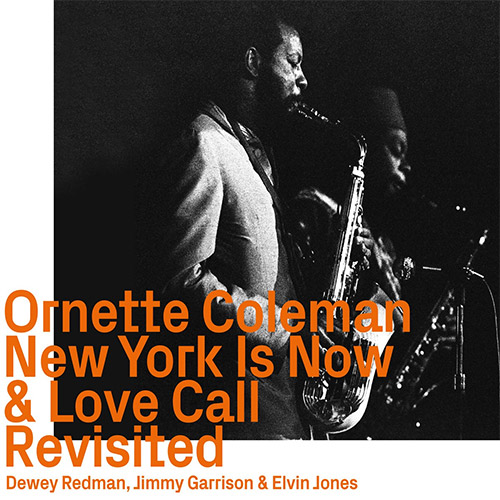



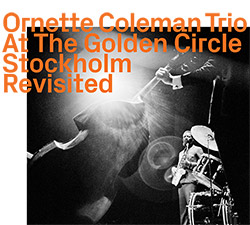

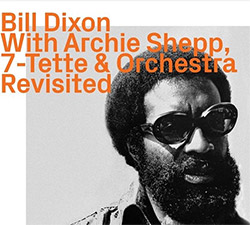
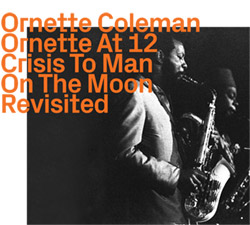
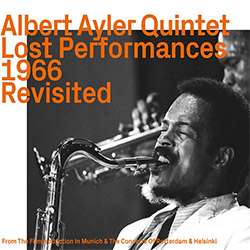
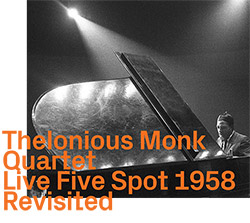
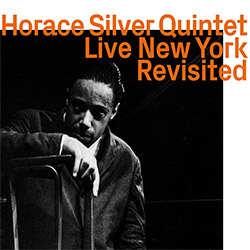
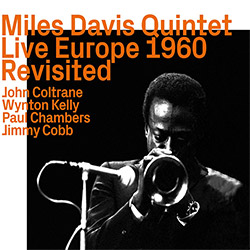
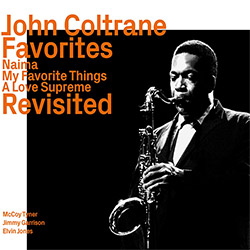
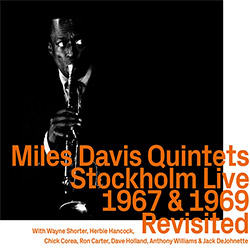


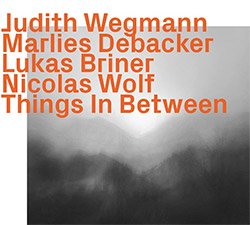

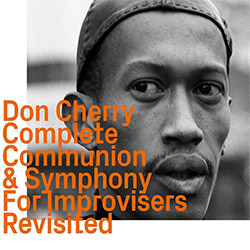
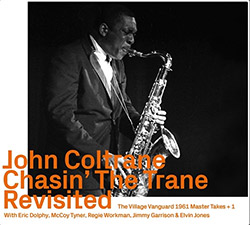
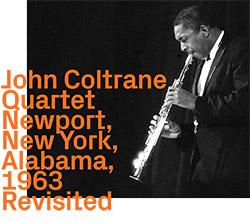



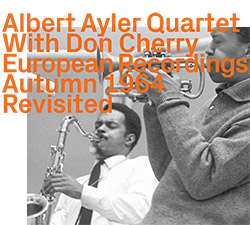
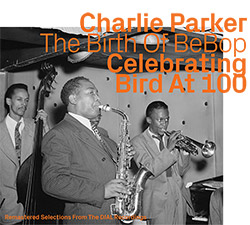
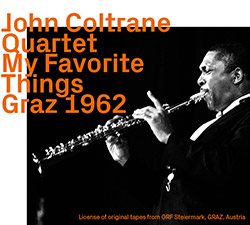




![BlueRing Improvisers: Materia [2 CDs]](https://www.teuthida.com/productImages/misc4/36513.jpg)








![Wheelhouse (Rempis / Adasiewicz / McBride): House And Home [VINYL]](https://www.teuthida.com/productImages/misc4/36462.jpg)
![+DOG+: The Light Of Our Lives [2 CDs]](https://www.teuthida.com/productImages/misc4/36009.jpg)


![Parker, Evan / Jean-Marc Foussat: Insolence [VINYL]](https://www.teuthida.com/productImages/misc4/36398.jpg)










![Deupree, Jerome / Sylvie Courvoisier / Lester St. Louis / Joe Morris: Canyon [2 CDs]](https://www.teuthida.com/productImages/misc4/36404.jpg)



![Eventless Plot | Haarvol: The Subliminal Paths [CASSETTE + DOWNLOAD]](https://www.teuthida.com/productImages/misc4/36232.jpg)










![Eventless Plot | Francesco Covarino: Methexis [CASSETTE + DOWNLOAD]](https://www.teuthida.com/productImages/misc4/36231.jpg)



![Das B (Mazen Kerbaj / Mike Majkowski / Magda Mayas / Tony Buck): Love [VINYL]](https://www.teuthida.com/productImages/misc4/36329.jpg)


![Eternities: Rides Again [CASSETTE]](https://www.teuthida.com/productImages/misc4/36247.jpg)
![Lopez, Francisco: Untitled (2021-2022) [2 CDs]](https://www.teuthida.com/productImages/misc4/36438.jpg)






![Money : Money 2 [2 CDs]](https://www.teuthida.com/productImages/misc4/35894.jpg)




![Klinga, Erik: Elusive Shimmer [VINYL]](https://www.teuthida.com/productImages/misc4/36258.jpg)
![CHANGES TO blind (Phil Zampino): Volume 9 - I Wave on a Fine Vile Mist [CD + DOWNLOAD]](https://www.teuthida.com/productImages/misc4/36061.jpg)

![Wallmart / Rubbish: Asset Protection [split CD]](https://www.teuthida.com/productImages/misc4/35900.jpg)


![+Dog+: The Family Music Book Vol. 5 [2 CDs]](https://www.teuthida.com/productImages/misc4/35897.jpg)
![Kuvveti, Deli : Kuslar Soyledi [CASSETTE w/ DOWNLOAD]](https://www.teuthida.com/productImages/misc4/36107.jpg)

![Brown, Dan / Dan Reynolds: Live At The Grange Hall [unauthorized][CASSETTE]](https://www.teuthida.com/productImages/misc4/36245.jpg)








![Palestine, Charlemagne / Seppe Gebruers: Beyondddddd The Notessssss [VINYL]](https://www.teuthida.com/productImages/misc4/36206.jpg)
![Palestine, Charlemagne / Seppe Gebruers: Beyondddddd The Notessssss [NEON GREEN VINYL]](https://www.teuthida.com/productImages/misc4/36207.jpg)

![Laubrock, Ingrid: Purposing The Air [2 CDs]](https://www.teuthida.com/productImages/misc4/35639.jpg)

![Yoko, Ono / The Great Learning Orchestra: Selected Recordings From Grapefruit [2 CDs]](https://www.teuthida.com/productImages/misc4/35841.jpg)









![Zorn, John / JACK Quartet: The Complete String Quartets [2 CDs]](https://www.teuthida.com/productImages/misc4/35609.jpg)

![Lonsdale, Eden: Dawnings [2 CDs]](https://www.teuthida.com/productImages/misc4/35480.jpg)



![Sorry For Laughing (G. Whitlow / M. Bates / Dave-Id / E. Ka-Spel): Rain Flowers [2 CDS]](https://www.teuthida.com/productImages/misc4/35985.jpg)

![Rolando, Tommaso / Andy Moor : Biscotti [CASSETTE w/ DOWNLOADS]](https://www.teuthida.com/productImages/misc4/36106.jpg)


![Electric Bird Noise / Derek Roddy: 8-10-22 [CD EP]](https://www.teuthida.com/productImages/misc4/35970.jpg)








![Elephant9 : Mythical River [VINYL]](https://www.teuthida.com/productImages/misc4/34624.jpg)



![Elephant9 with Terje Rypdal: Catching Fire [VINYL 2 LPs]](https://www.teuthida.com/productImages/misc4/35355.jpg)
![Deerlady (Obomsawin, Mali / Magdalena Abrego): Greatest Hits [VINYL]](https://www.teuthida.com/productImages/misc4/34876.jpg)







![Surplus 1980: Illusion of Consistency [CD]](https://www.teuthida.com/productImages/misc4/35069.jpg)
![Staiano, Moe: Away Towards the Light [VINYL + DOWNLOAD]](https://www.teuthida.com/productImages/misc4/35037.jpg)
![Coley, Byron: Dating Tips for Touring Bands [VINYL]](https://www.teuthida.com/productImages/misc4/17906.jpg)

![Lost Kisses: My Life is Sad & Funny [DVD]](https://www.teuthida.com/productImages/misc4/lostKissesDVD.jpg)